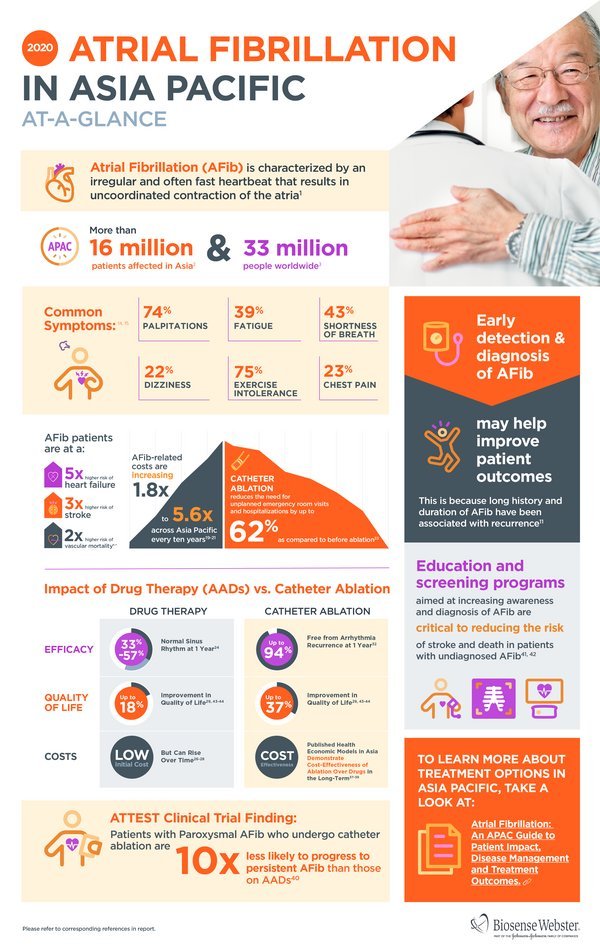
Photo Credit: PRNewswire
Biosense Webster, Inc., part of the Johnson & Johnson Medical Devices Companies*, has published a report, Atrial Fibrillation: An APAC Guide to Patient Impact, Disease Management, and Treatment Outcomes, examining available treatment options for Atrial Fibrillation (AF) across the Asia Pacific and the long-term impact on clinical, patient, and economic outcomes.
In Asia Pacific, it is estimated that 16 million people are affected by AF -- a condition characterized by an irregular and often fast heart rhythm. This irregular heart rhythm, known as an arrhythmia, can lead to serious health complications including blood clots and an increased risk of heart failure, stroke, and death. However, early detection and access to treatment can significantly improve outcomes, potentially increasing the overall quality and expectancy of the patient's life.
Biosense Webster's latest report further affirmed the clinical and economic efficacy of catheter ablation with data showing:




